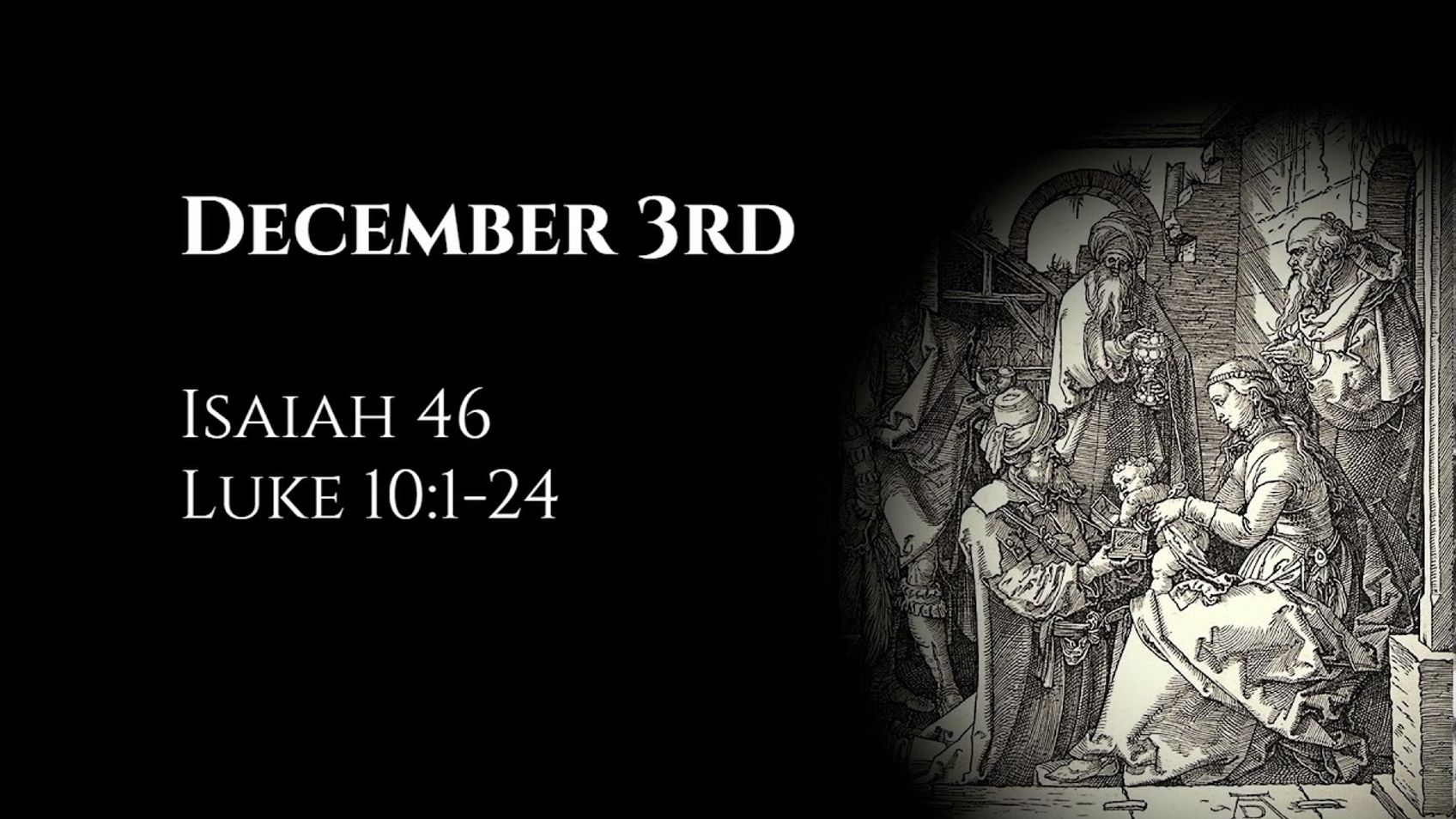December 3rd: Isaiah 46 & Luke 10:1-24
December 2, 2021

Alastair Roberts
Bel bows down; Nebo stoops. Sending out the seventy-two.
My reflections are searchable by Bible chapter here: https://audio.alastairadversaria.com/explore/.
If you are interested in supporting this project, please consider supporting my work on Patreon (https://www.patreon.com/zugzwanged), using my PayPal account (https://bit.ly/2RLaUcB), or buying books for my research on Amazon (https://www.amazon.co.uk/hz/wishlist/ls/36WVSWCK4X33O?ref_=wl_share).
You can also listen to the audio of these episodes on iTunes: https://itunes.apple.com/gb/podcast/alastairs-adversaria/id1416351035?mt=2.
More From Alastair Roberts
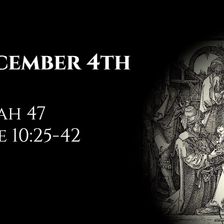
December 4th: Isaiah 47 & Luke 10:25-42
Alastair Roberts
December 3, 2021
The humbling of the proud virgin of Babylon. The Parable of the Good Samaritan.
My reflections are searchable by Bible chapter here: https://audio.al
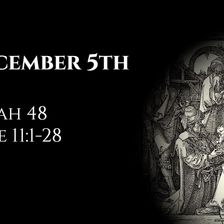
December 5th: Isaiah 48 & Luke 11:1-28
Alastair Roberts
December 4, 2021
Listen to me, O Jacob! The Lord's Prayer.
My reflections are searchable by Bible chapter here: https://audio.alastairadversaria.com/explore/.
If you
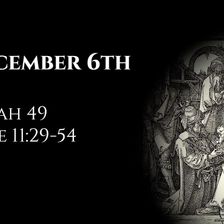
December 6th: Isaiah 49 & Luke 11:29-54
Alastair Roberts
December 5, 2021
The servant of the Lord, the Lord's salvation to the ends of the earth. Woes upon the Pharisees and lawyers.
My reflections are searchable by Bible c
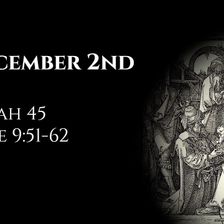
December 2nd: Isaiah 45 & Luke 9:51-62
Alastair Roberts
December 1, 2021
Cyrus, the Lord's anointed. Leave the dead to bury their own dead.
My reflections are searchable by Bible chapter here: https://audio.alastairadversa
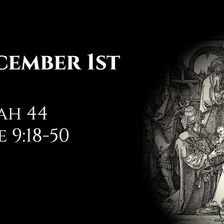
December 1st: Isaiah 44 & Luke 9:18-50
Alastair Roberts
November 30, 2021
Demystifying the idols. The Transfiguration.
My reflections are searchable by Bible chapter here: https://audio.alastairadversaria.com/explore/.
If
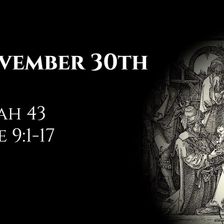
November 30th: Isaiah 43 & Luke 9:1-17
Alastair Roberts
November 29, 2021
I have called you by name, you are mine. Sending out the Twelve and feeding the five thousand.
My reflections are searchable by Bible chapter here: h
More on OpenTheo

How Do I Determine Which Topics at Work Are Worth Commenting On?
#STRask
January 5, 2026
Questions about how to determine which topics at work are worth commenting on, and a good way to respond when you’re in a group Bible study and hear e

Does God Hear the Prayers of Non-Believers?
#STRask
February 26, 2026
Questions about whether or not God hears and answers the prayers of non-believers, and thoughts about a church sign that reads (as if from God), “Just

How Do You Justify Calling Jesus the Messiah?
#STRask
December 18, 2025
Questions about how one can justify calling Jesus the Messiah when he didn’t fulfill the Hebrew messianic prophecies, and whether the reason for the v

Are Demon Possessions and Exorcisms in the New Testament Literal?
#STRask
December 11, 2025
Questions about whether references to demon possessions and exorcisms in the New Testament are literal, how to talk to young children about ghosts, an

Shouldn’t I Be Praying for My Soul Rather Than for Material Things?
#STRask
February 2, 2026
Questions about whether we should be praying for our souls rather than for material things, why we need to pray about decisions, whether the devil can

What Do You Think About Churches Advertising on Social Media?
#STRask
January 19, 2026
Questions about whether there’s an issue with churches advertising on social media, whether it’s weird if we pray along with a YouTuber, and whether C

Lora Ries: Border Security and Immigration Policy
Knight & Rose Show
December 7, 2025
Wintery Knight and Desert Rose welcome Lora Ries to discuss border security and immigration policy. They explore Biden's policy changes, like ending R

Why Should We Pray If God Already Knows What’s Going to Happen?
#STRask
January 29, 2026
Questions about why we should pray if God already knows what’s going to happen, how the effectiveness of prayer is measured, and whether or not things

What Are Some Good Ways to Start a Conversation About God with Family Members?
#STRask
October 30, 2025
Questions about how to start a conversation about God with non-Christian family members, how to keep from becoming emotional when discussing faith iss

Why Do We Say Someone Was Saved on a Particular Date If It Was Part of an Eternal Plan?
#STRask
November 24, 2025
Questions about why we say someone was saved on a particular date if it was part of an eternal plan, the Roman Catholic view of the gospel vs. the Bib

Is 1 Corinthians 12:3 a Black-and-White Tool for Discernment?
#STRask
October 27, 2025
Questions about whether the claim in 1 Corinthians that “no one can say ‘Jesus is Lord’ except in the Holy Spirit” is a black-and-white tool for disce

Conservatism and Religious Freedom with John Wilsey
Life and Books and Everything
October 27, 2025
What is conservatism? And why does it go hand in hand with religious freedom? How should we think about the American experiment of ordered liberty? Ha

Christmas Cranks and Christmas Blessings with Justin Taylor and Collin Hansen
Life and Books and Everything
December 17, 2025
If you are looking for a podcast where three friends talk about whatever they want to talk about and ramble on about sports, books, and grievances, th

Is It Possible There’s a Being That’s Greater Than God?
#STRask
February 5, 2026
Questions about whether it’s possible there’s a being that’s greater than God and that’s outside of God’s comprehension and omniscience, and how to ex

Can Two Logical People Come to Conflicting Conclusions Without Committing a Fallacy?
#STRask
January 8, 2026
Questions about whether two logical people can come to conflicting conclusions on a topic without committing a fallacy, how Greg, as a public figure,
